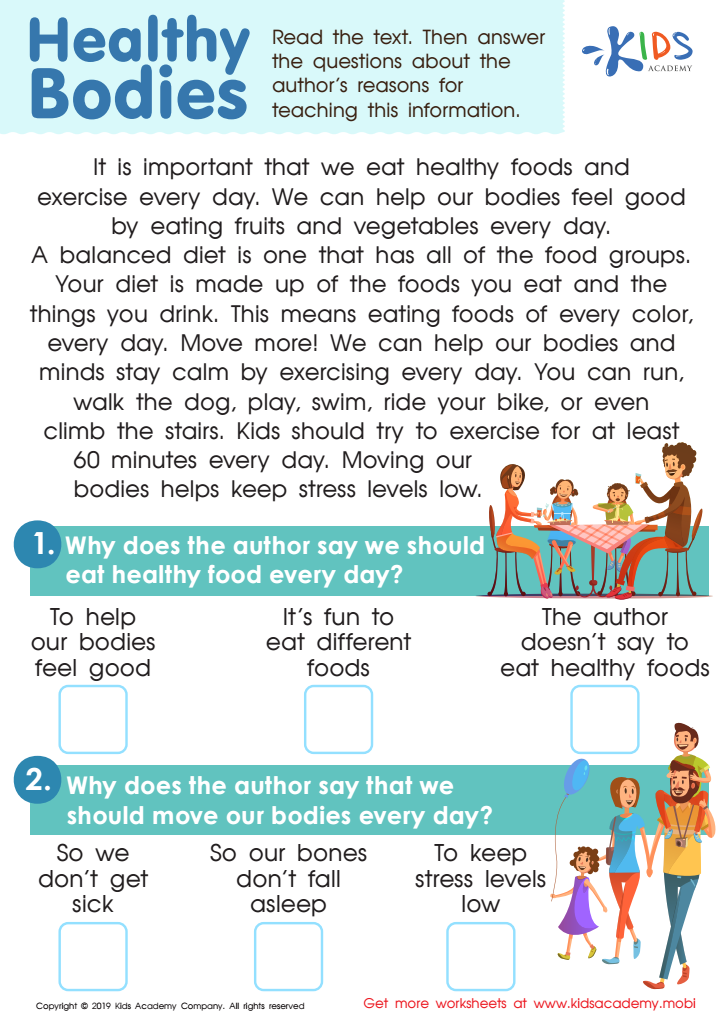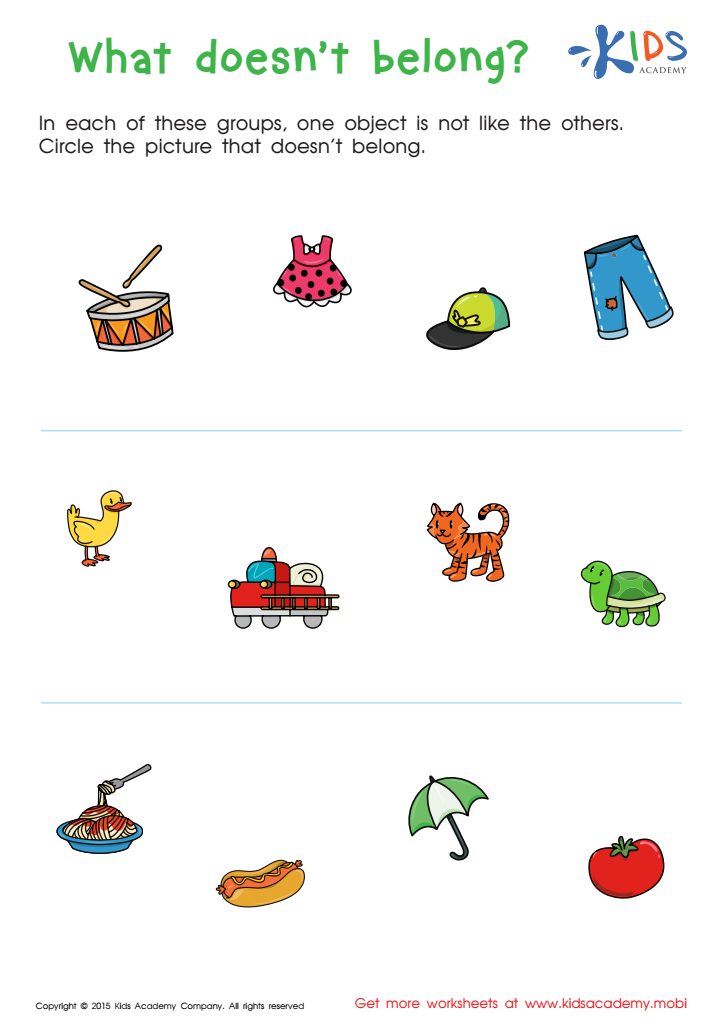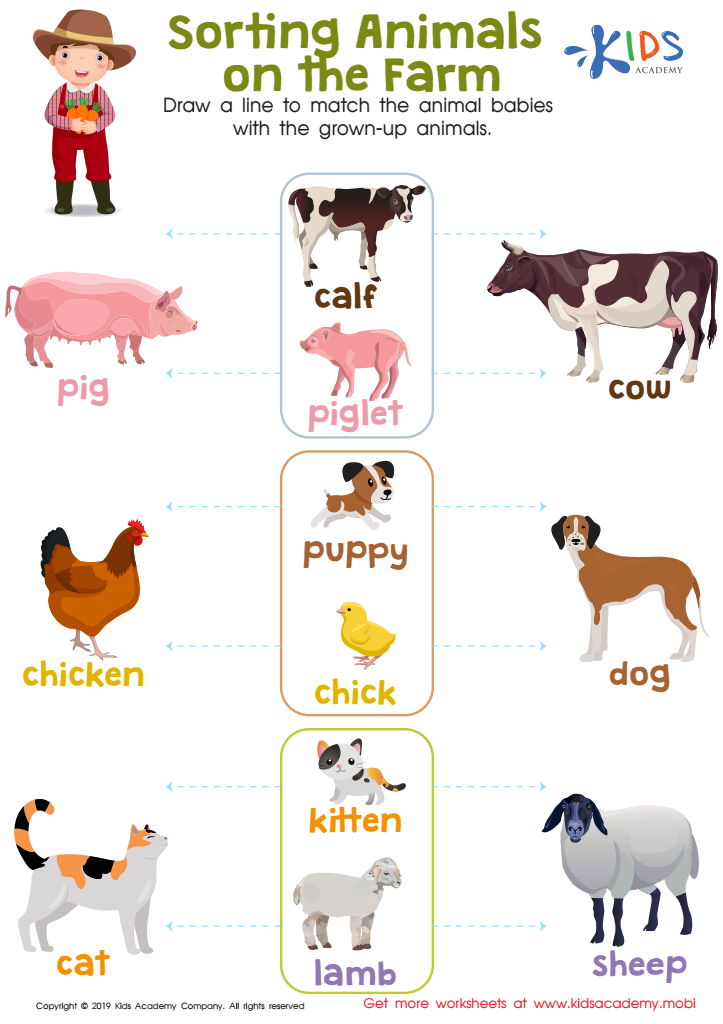Categorization skills Normal Reading Worksheets for Ages 3-9
3 filtered results
-
From - To
Develop your child’s categorization skills with our expertly designed Normal Reading Worksheets for Ages 3-9. These engaging and age-appropriate activities help young learners enhance their reading comprehension and critical thinking abilities. Each worksheet encourages kids to group words and pictures into logical categories, fostering organization and analytical skills essential for academic success. Our easy-to-follow exercises captivate children's interest, making learning both enjoyable and effective. Perfect for use at home or in the classroom, these categorization worksheets are a valuable resource in developing foundational reading and cognitive skills. Start your child’s journey to smarter sorting and categorization today!


Healthy Bodies Worksheet


First Words: What Doesn't Belong Worksheet


Sorting Animals on the Farm Worksheet
Categorization skills are crucial for young children (ages 3-9) because they form the foundation for cognitive development and successful reading. When children learn to categorize, they can sort objects, ideas, and information into groups based on shared characteristics. This fundamental skill promotes logical thinking and problem-solving abilities, which are essential for academic success across all subjects.
For reading, categorization skills are particularly important. As children become familiar with sorting objects and concepts, they begin to understand how words can be grouped by sounds, meanings, and sentences. This comprehension is essential for phonemic awareness, vocabulary building, and comprehension skills. For instance, recognizing that the word "cat" belongs to the same category as "bat," "hat," and "rat" helps in understanding rhymes and sound patterns, crucial for early reading.
Parents and teachers should nurture categorization skills by incorporating sorting and grouping activities into daily routines. Examples include classifying toys by color or shape, discussing animal types, or grouping foods. Games and stories also aid in this development, making learning fun and engaging. Ultimately, strong categorization skills contribute to better reading abilities, setting a solid foundation for future education and a lifelong love of learning. Investing time in fostering these skills pays substantial dividends in a child's overall intellectual growth and academic success.
 Assign to My Students
Assign to My Students







.jpg)












